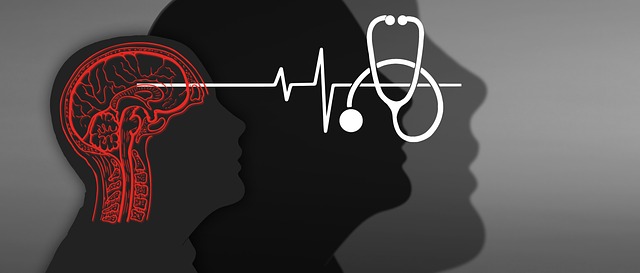Mental illness stigma, rooted in historical misconceptions, severely hinders access to specialized care like Westminster Psychosis Therapy. This barrier leads to discrimination and suffering in silence. Overcoming stigma through education and awareness is crucial for promoting emotional well-being, fostering inclusive communities, and providing crisis intervention guidance. Westminster Psychosis Therapy employs patient-centered approaches and evidence-based practices to deconstruct societal perceptions, empower individuals, and improve mental health outcomes. Comprehensive programs including workshops, public talks, and self-care practices can normalize conversations about mental health and reduce stigma at the community level. Success stories highlight effective strategies for future stigma reduction efforts focused on education, advocacy, and support groups.
Mental illness stigma remains a significant barrier to treatment and recovery. This article delves into strategies aimed at reducing this pervasive social issue, exploring its roots and impact. We present ‘Westminster Psychosis Therapy’ as a compelling case study for deconstructing stigma through personalized care. Additionally, we discuss effective communication techniques, the role of education, and community engagement efforts. By examining success stories and future directions, including measurement tools, we aim to illuminate progress in the ongoing fight against mental illness stigma.
- Understanding Mental Illness Stigma: Its Impact and Roots
- Westminster Psychosis Therapy: A Case for Deconstructing Stigma
- Strategies for Effective Communication to Reduce Stigma
- The Role of Education and Awareness in Community Engagement
- Success Stories and Future Directions: Measuring Progress in Stigma Reduction
Understanding Mental Illness Stigma: Its Impact and Roots

Mental illness stigma is a pervasive issue that deeply affects individuals and communities alike. It stems from misconceptions and fears surrounding mental health conditions, often leading to discrimination and exclusion. This stigma has roots in historical and societal beliefs, where mental disorders were once attributed to supernatural causes or seen as personal failings. Despite significant advancements in psychology and psychiatry, these outdated perspectives linger, hindering the pursuit of Westminster psychosis therapy and other forms of specialized care.
The impact of stigma is profound, causing individuals with mental health issues to suffer in silence, avoid seeking help, and face challenges in maintaining employment or social relationships. It can lead to self-stigmatization, where people internalize these negative perceptions, impacting their self-esteem and overall emotional well-being. Emotional well-being promotion techniques that combat stigma are crucial for fostering inclusive communities and providing crisis intervention guidance that supports those affected. By challenging these misconceptions through education and awareness, we can work towards improving self-esteem improvement and creating a more supportive environment for mental health treatment and recovery.
Westminster Psychosis Therapy: A Case for Deconstructing Stigma

Westminster Psychosis Therapy represents a powerful approach to deconstructing stigma surrounding mental illness. By focusing on patient-centered care and evidence-based practices, this initiative challenges societal perceptions and promotes understanding. Through individualized treatment plans, the therapy emphasizes recovery and resilience, fostering an environment where individuals feel empowered to share their experiences openly.
Moreover, integrating communication strategies within the therapy sessions encourages empathetic dialogue between patients, healthcare providers, and support networks. This inclusive approach not only enhances effective listening but also equips participants with burnout prevention strategies essential for navigating challenging conversations around mental health. Stress Management Workshops Organization plays a crucial role in reinforcing these efforts by providing additional resources and platforms for continuous learning, ensuring that the deconstruction of stigma remains a dynamic process within the healthcare landscape.
Strategies for Effective Communication to Reduce Stigma

Stigma reduction efforts must focus on clear and empathetic communication to foster understanding and compassion. Educating communities about mental health conditions, including psychosis, is a powerful strategy. Westminster Psychosis Therapy can play a crucial role in this by providing accessible resources and sharing personal stories to humanize these experiences. Normalizing conversations around mental health through public forums, school programs, and media campaigns contributes to breaking down barriers.
Mental Health Policy Analysis and Advocacy groups have been instrumental in pushing for inclusive policies that promote positive thinking and reduce discrimination. By integrating mental health education into mainstream curricula, we can ensure that future generations are equipped with the knowledge to recognize signs of distress and offer support without judgment. This holistic approach, combined with consistent messaging from influential figures, can significantly impact public perception, ultimately leading to a more supportive environment for individuals living with mental illness.
The Role of Education and Awareness in Community Engagement

Education and awareness play a pivotal role in reducing the stigma surrounding mental illness within communities. By implementing comprehensive programs that educate both the general public and at-risk groups, we can foster an environment of understanding and empathy. This involves sharing accurate information about various mental health conditions, dispelling myths, and promoting compassionate perspectives. Such initiatives, often led by healthcare professionals like those at Westminster Psychosis Therapy, empower individuals to recognize symptoms in themselves or others and encourage them to seek help without fear of judgment.
Community engagement strategies that incorporate educational workshops, public talks, and interactive sessions can effectively break down barriers. These activities not only raise mental health literacy but also encourage open conversations about emotional well-being. In line with promoting self-care routines for better mental health, these efforts inspire individuals to prioritize their mental wellness, understand available support systems, and actively contribute to creating a more inclusive and supportive community.
Success Stories and Future Directions: Measuring Progress in Stigma Reduction

Success stories in stigma reduction efforts offer a beacon of hope and valuable insights into what works best to change public perceptions about mental illness. Initiatives that combine education, advocacy, and support groups have proven particularly effective. For instance, Westminster Psychosis Therapy has made significant strides by integrating self-care practices and emotional well-being promotion techniques into their treatment models, leading to improved patient outcomes and reduced stigma within the community. These efforts not only empower individuals with mental health conditions but also foster a culture of empathy and understanding.
Looking ahead, measuring progress in stigma reduction is paramount. By utilizing robust evaluation methods and data collection tools, we can assess the impact of various interventions accurately. This includes tracking changes in public attitudes, healthcare utilization rates, and individual experiences navigating mental health services. Leveraging emotional intelligence to understand the nuances of stigma at both individual and societal levels will be crucial for designing future strategies. Such efforts aim to build on existing successes and continue to revolutionize how we address and reduce the stigma surrounding mental illness.
Mental illness stigma, a pervasive societal issue, demands continuous efforts towards reduction. The exploration of approaches like Westminster Psychosis Therapy demonstrates promising paths to deconstructing this barrier. Effective communication strategies, coupled with education and community engagement, play pivotal roles in fostering understanding. Success stories from various initiatives offer hope for the future, encouraging ongoing commitment to measure and enhance stigma reduction progress. By integrating these multifaceted strategies, we can create a more inclusive society where mental health is treated with the same compassion as physical health.














